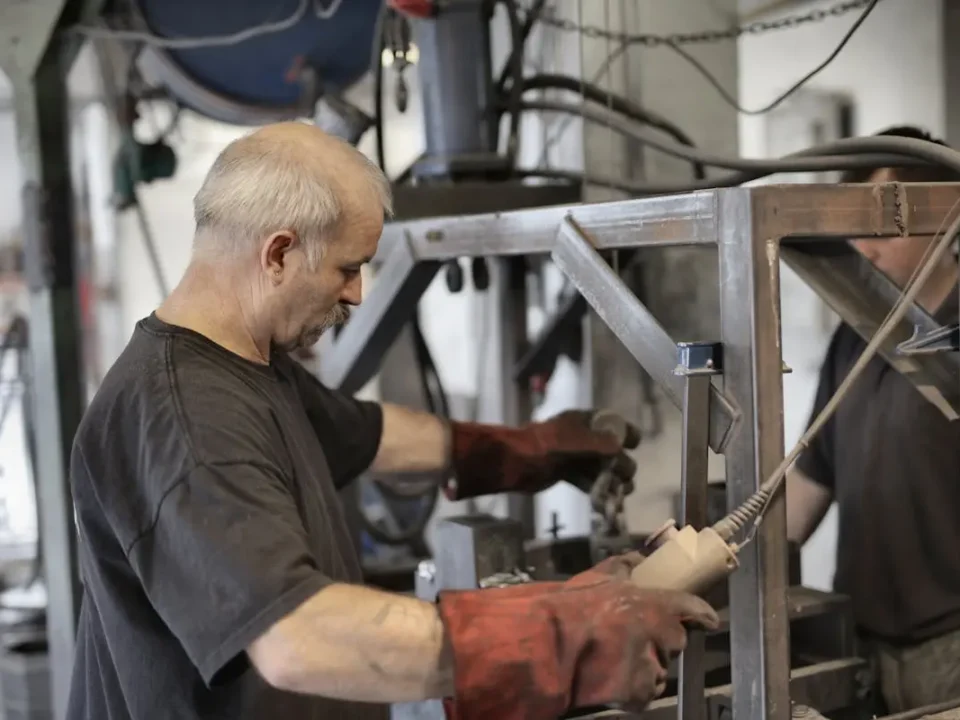
The Future is Now: How Data Analysis is Transforming the Manufacturing Process
May 12, 2024
CAD Techniques to Unlock Production Potential and Reduce Costs
June 10, 2024How AI Production is Changing the Game for Small Manufacturers
Introduction to AI production for small manufacturers
AI technology isn't just for big companies anymore—small manufacturers are also getting in on the game. AI production involves using artificial intelligence to streamline operations and improve efficiency in manufacturing processes. With AI, small manufacturers can enhance product quality, increase production speed, and reduce costs. AI algorithms analyze data to help predict maintenance needs, optimize production schedules, and improve overall decision-making. By implementing AI, small manufacturers can stay competitive in the ever-evolving market landscape.

Advantages of incorporating AI in manufacturing processes
AI in manufacturing processes offers numerous advantages. Incorporating AI can lead to increased efficiency, reduced production costs, improved product quality, and enhanced predictive maintenance capabilities. Additionally, AI can facilitate real-time monitoring of operations, allowing for quick identification and resolution of issues. Moreover, AI technologies can help optimize workflow, streamline decision-making processes, and ultimately boost overall productivity for small manufacturers.
AI production offers small manufacturers a competitive edge by enhancing cost-effectiveness and efficiency. Implementing AI technology reduces operational expenses and boosts overall productivity. Automation allows for streamlined processes that can operate around the clock, leading to quicker production cycles and reduced labor costs. Additionally, AI systems can optimize inventory management, minimizing waste and ensuring resources are utilized efficiently. Adopting AI production methods enables small manufacturers to remain competitive in the market by delivering high-quality products at a lower cost and in a more timely manner.
Impact of AI on product quality and customization
AI is transforming the manufacturing industry by enhancing product quality and customization. Artificial Intelligence in production processes ensures consistent and precise output, leading to higher-quality products. AI algorithms analyze vast amounts of data to identify patterns and make adjustments in real-time, resulting in fewer defects and increased efficiency. Moreover, AI enables manufacturers to offer customized products at scale, meeting individual customer preferences with ease.
Predictive maintenance through data analysis helps companies prevent machinery breakdowns by analyzing data to predict when maintenance is needed. This proactive approach reduces downtime and saves money by fixing issues before they become critical. Data analysis provides insights into the condition of equipment, allowing for timely repairs and reducing unexpected failures. This process transforms the manufacturing sector by streamlining operations and optimizing efficiency.
Training and upskilling the workforce for AI integration
To successfully implement AI in production, small manufacturers often face challenges such as the high initial costs, lack of skilled staff, and integrating AI with existing systems. Here are some ways to overcome these hurdles:
- Invest in Training: Provide employees with training to familiarize them with AI systems and processes.
- Start Small: Begin with pilot projects to test AI applications before full-scale implementation.
- Collaborate with Experts: Seek guidance from AI consultants or vendors to navigate the implementation process effectively.
- Regular Maintenance: Ensure consistent monitoring and maintenance of AI systems to optimize performance and longevity.
Overcoming Challenges in Adopting Data Analysis in Manufacturing
Training and upskilling the workforce for AI integration is crucial for small manufacturers to stay competitive in the rapidly advancing industry. By providing employees with the necessary skills and knowledge to utilize AI technologies effectively, companies can improve productivity, streamline processes, and enhance product quality. Key points to focus on include:
- Understanding the basics of AI and its applications in the manufacturing sector.
- Learning how to operate AI-powered machinery and systems.
- Developing problem-solving abilities to troubleshoot AI-related issues.
- Ensuring continuous education and training to adapt to evolving AI technologies.
Investing in workforce training for AI integration can result in significant benefits for small manufacturers, including increased efficiency, reduced errors, and enhanced innovation capabilities.





